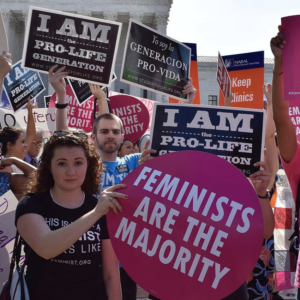The U.S. Supreme Court’s decision in the Dobbs case, which returned abortion policy decisions to individual states, has sparked an important public policy discussion about what limits on abortion are appropriate. Most Americans are willing to have reasonable discussions about reasonable limits on abortion.
But some politicians have sought to take advantage of the heightened sensitivity of the issue, spreading false, misleading claims for personal political gain. My opponent is one of them and I want to set the record straight: I have never voted in support of an abortion ban. And if a ban were ever advanced in Pennsylvania, I would oppose it.
The Dobbs decision has fueled efforts by both supporters and opponents of abortion to vastly change state abortion laws. In West Virginia, some have pushed for aggressive bans on abortion with limited exceptions. Meanwhile, some pro-choice advocates are championing efforts to vastly expand abortion access into the third trimester. Pennsylvania House Democratic Policy Committee hearing this summer featured panelists who championed eliminating all abortion restrictions. As one panelist stated, “every abortion restriction is extreme.”
There are also efforts currently underway through the courts to overturn a 30-year-old Pennsylvania law that prohibits the use of taxpayer funding to perform abortions. It provides exceptions for rape, incest, and to protect the life of the mother. This case, Allegheny Reproductive Health Center vs. the Pennsylvania Department of Human Services, is now before the Pennsylvania Supreme Court. The appellants are asking the state’s majority Democratic Supreme Court to establish a state constitutional right to taxpayer-funded abortions. In its ruling, the court could also establish a state constitutional right to abortion, removing all abortion restrictions and allowing abortions to be performed up until the moment of birth.
Following the Dobbs decision, I’ve had extensive conversations with many constituents about what constitutes reasonable abortion access and restrictions. It is clear to me that the vast majority of residents hold moderate, middle-of-the-ground views. Many who consider themselves “pro-choice” believe if a woman plans to have an abortion, she should do it before the child would be viable outside the womb. Conversely, many who consider themselves “pro-life” support allowing abortions up until 20 weeks.
What I’ve learned is that most local residents do not support an abortion ban, nor do they support proposals promoted by Planned Parenthood and others to eliminate all abortion limitations. Most fall in the middle: Supporting both protecting a woman’s right to choose in the early stages of pregnancy and the government’s ability to protect life once it would be viable outside the womb.
Abortion in Pennsylvania is governed by the Abortion Control Act of 1982, which allows abortions to be performed up until 24 weeks for any reason, except to select the sex of the baby. There are additional exceptions after 24 weeks, such as to protect the life of the mother.
The proposed Pennsylvania constitutional amendment approved by the legislature this summer, S.B. 106, clarifies that it is entirely within the purview of the legislature to regulate abortion. For the constitutional amendment to take effect, it needs to again pass the legislature next legislative session. Pennsylvania voters would then approve or disapprove of it in a statewide referendum.
My opponent’s claim that the proposed amendment bans abortion is an outright lie. The amendment makes no change to the Abortion Control Act, nor does it further restrict access to abortion. On the contrary, I supported the amendment to maintain the status quo and prevent a Pennsylvania Supreme Court decision that invalidates current law, removes all abortion restrictions, and creates a constitutional right to taxpayer-funded abortions.
That is why the amendment is worded the way it is. “This constitution does not grant the right to taxpayer-funded abortion or any other right relating to abortion.” It does not ban abortion in Pennsylvania. It preserves current law and the ability of the legislature to establish reasonable restrictions.
This is a deeply personal public policy discussion. As elected officials, we must work to achieve a public consensus on the topic through open, honest discourse. Politicians on both sides of the abortion issue who spread inflammatory rhetoric are doing a great disservice to voters.
As a member of the House of Representatives, my job is to represent the views of the residents of my district. As such, I will not support any legislation that would either expand or ban access to abortion. This is not a public policy we should rush into until such time as a public consensus is achieved.
Please follow DVJournal on social media: Twitter@DVJournal or Facebook.com/DelawareValleyJournal

